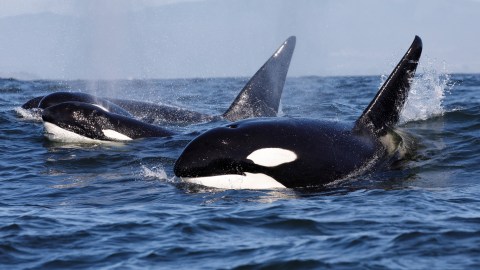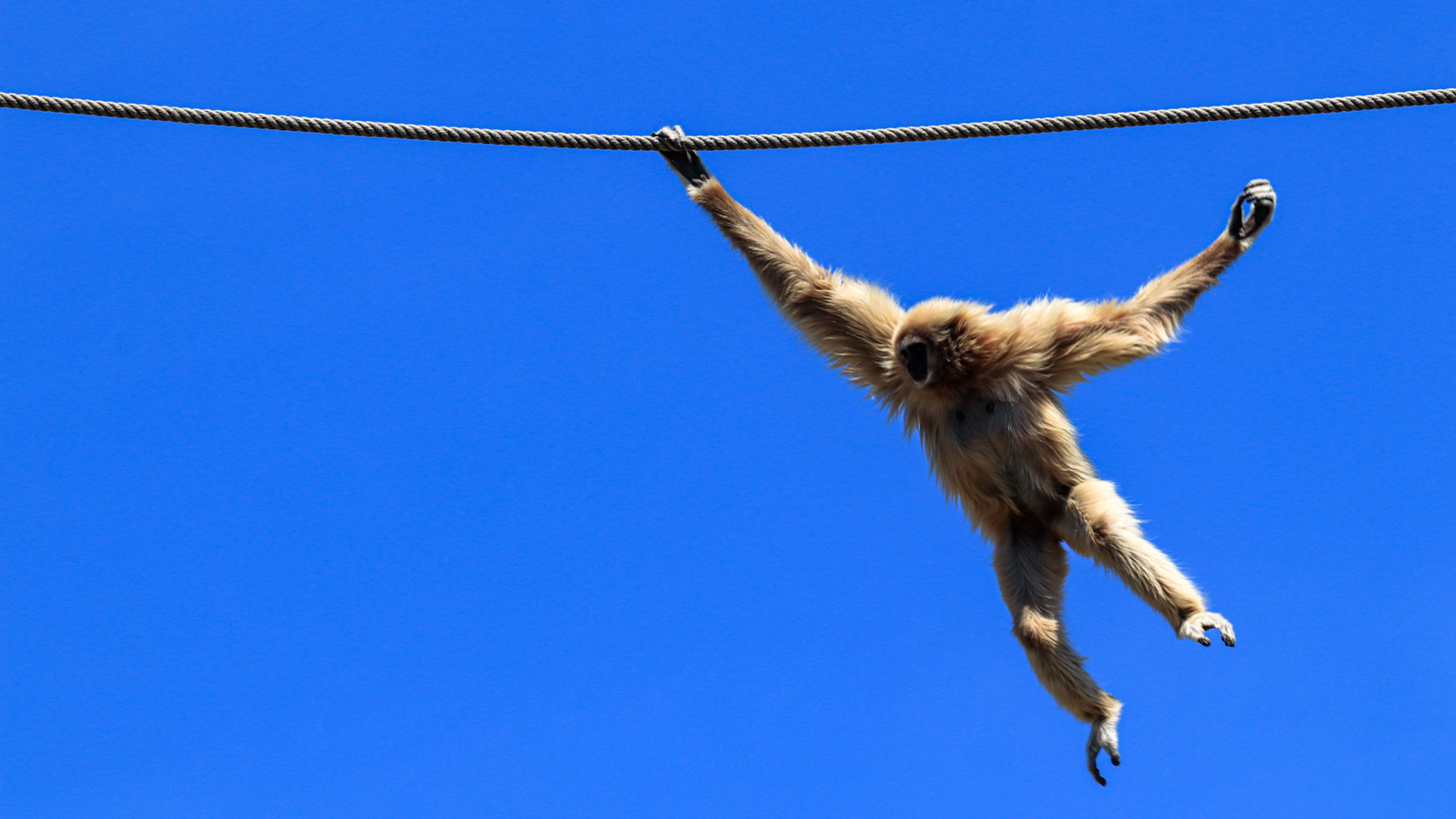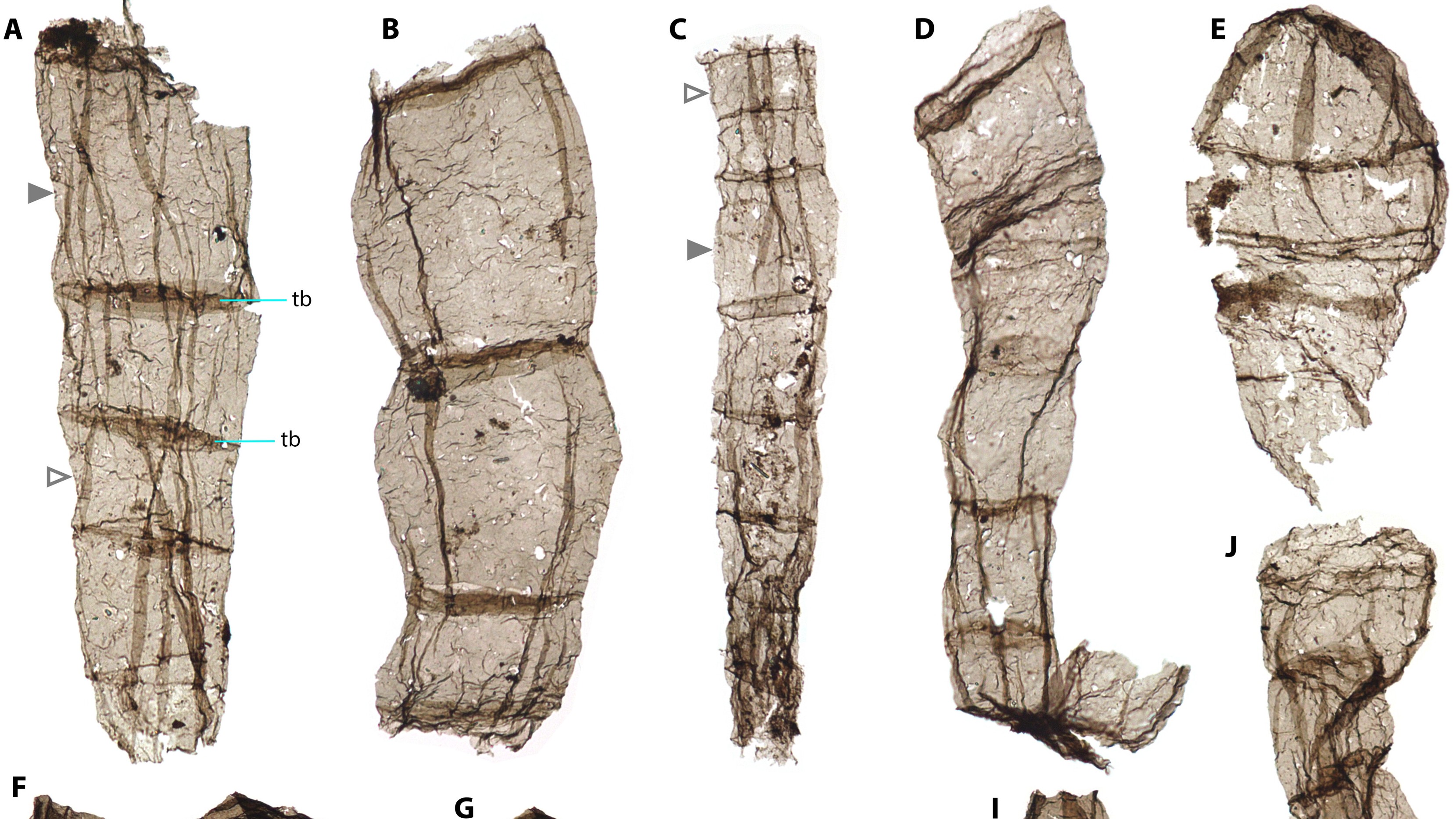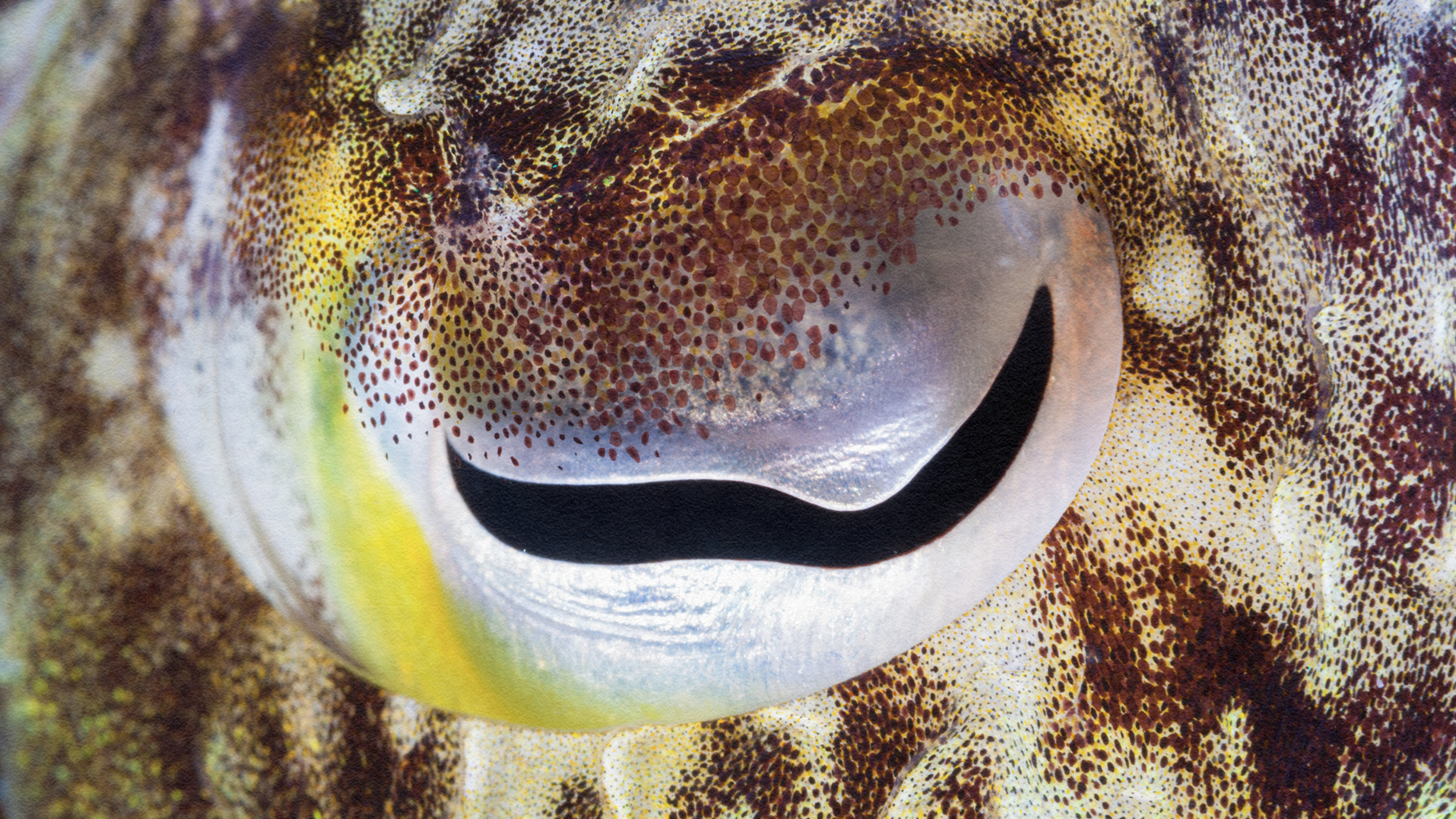Sharks flee in terror when killer whales show up

Credit: Tory Kallman/Shutterstock
- A new study finds that sharks will flee areas they met orcas in for up to a year.
- Killer whales are known to eat sharks, but it is unknown if the sharks are fleeing because they know that too.
- The discovery will change our understanding of how marine ecosystems evolve.
Orcas, also known as “killer whales,” are pretty cool. They’re usually friendly despite their nickname, and are in an elite club of animals with no natural predators. With a range that spans the world and a coloring reminiscent of an equally popular but much less capable land animal, their image permeates pop culture.
But a new study published in Scientific Reports offers another reason to be impressed by these majestic creatures; they are so intimidating to ocean life that even great white sharks flee in terror before them.
The study, titled “Killer whales redistribute white shark foraging pressure on seals,” results from years of investigations into the movements and behavior of 165 tagged great white sharks, observations and records of killer whale movements, and information on seal populations off the coast of California. They also looked to previous descriptions of shark and whale interactions to give context to their findings.
The sharks immediately turned tail and fled in every time they crossed paths with orcas. They’d also stay away from that place long afterward. Only one observed shark dared venture back to where it had just encountered the whales, and it didn’t stick around. Most of the sharks merely fled a bit further up the coastline, while others went much further out to sea to avoid the whales.
Great White Shark Mauled By Killer Whales | Abalone Wars S4www.youtube.com
Orcas have been known to eat great whites. The remains of the sharks are a grotesque sight to behold and are always missing their livers, no matter how much else remains or is missing. If the orcas have discovered a source of Chianti to pair with them or not remains unknown at this time.
However, we don’t currently know if the sharks are fleeing because they understand that risk, because they knew the orcas would fight them for the same food supply, because whales look big and scary to them, or some combination of the three.
Before this gets too frightening, there are no known cases of wild orcas killing humans, and only a few examples of injuries being caused by these interactions. Orcas kept in tiny boxes for long periods can be a bit more violent, but that’s another story.
Anything that makes sharks flee in terror will have an impact on the ecosystem. In this case, elephant seals benefit.
Observations of seal populations show a decline in predation events after orcas that can last for an entire year. While orcas occasionally snack on elephant seals, they stick to fish most of the time. It’s a boon for the seals in areas the sharks leave, though the seals in the places they flee to might not see it that way. The findings of this study will inform our understanding of seal population fluctuations.
As lead author Salvador Jorgensen explains, the study also demonstrates that “food chains are not always linear. So-called lateral interactions between top predators are fairly well known on land but are much harder to document in the ocean. And because this one happens so infrequently, it may take us a while longer to fully understand the dynamics.”
For those wondering how much longer it may take to reach that understanding, this study relied on decades of data on shark, whale, and seal populations in addition to the recently collected information. While demonstrating the value of long-term datasets and the long-term importance of minor interactions is great for science, the impatient may be disappointed at the slow pace of progress.
But the most important take away of this study might be the obvious one:
Never made an orca angry, unless you’re tougher than a great white shark.





